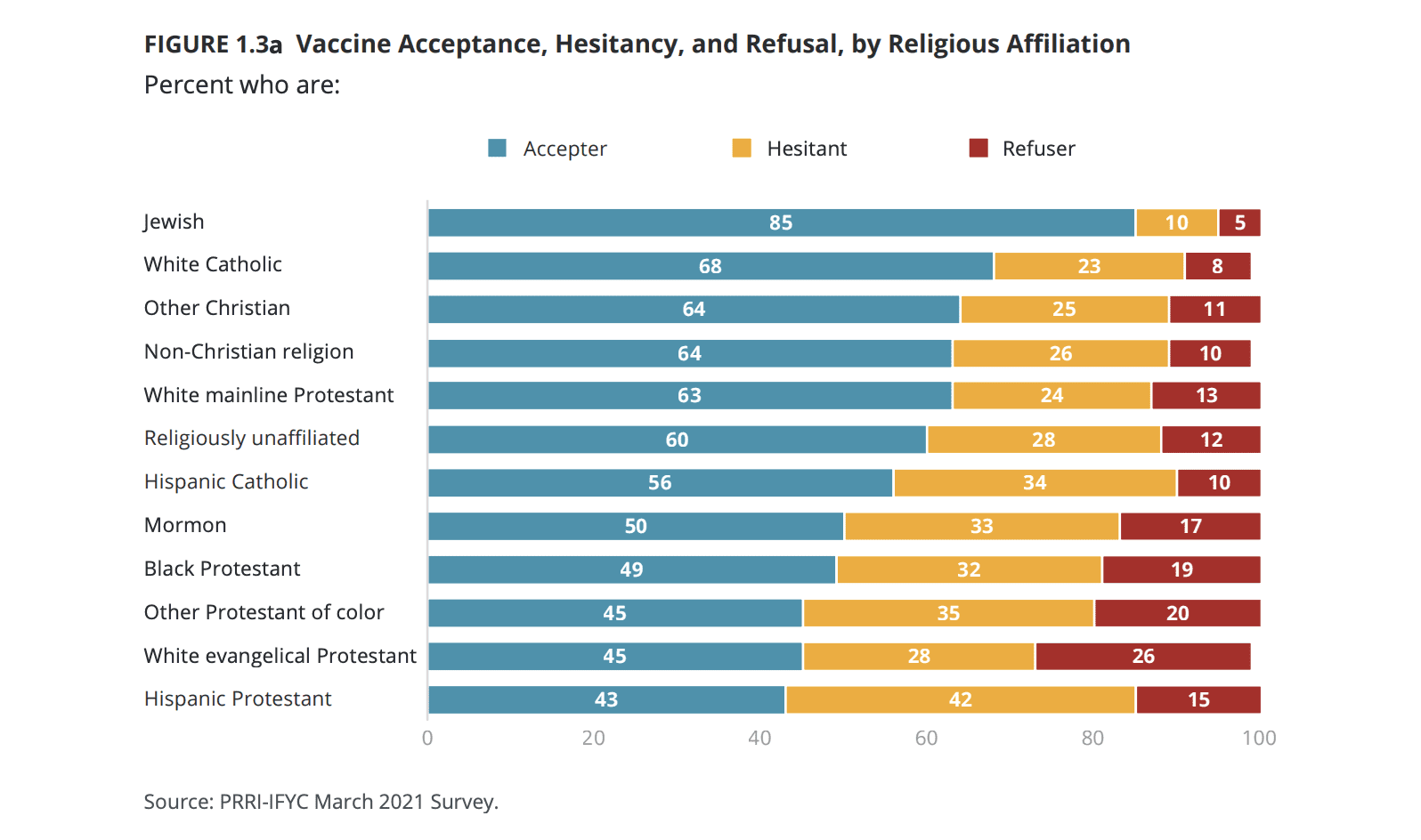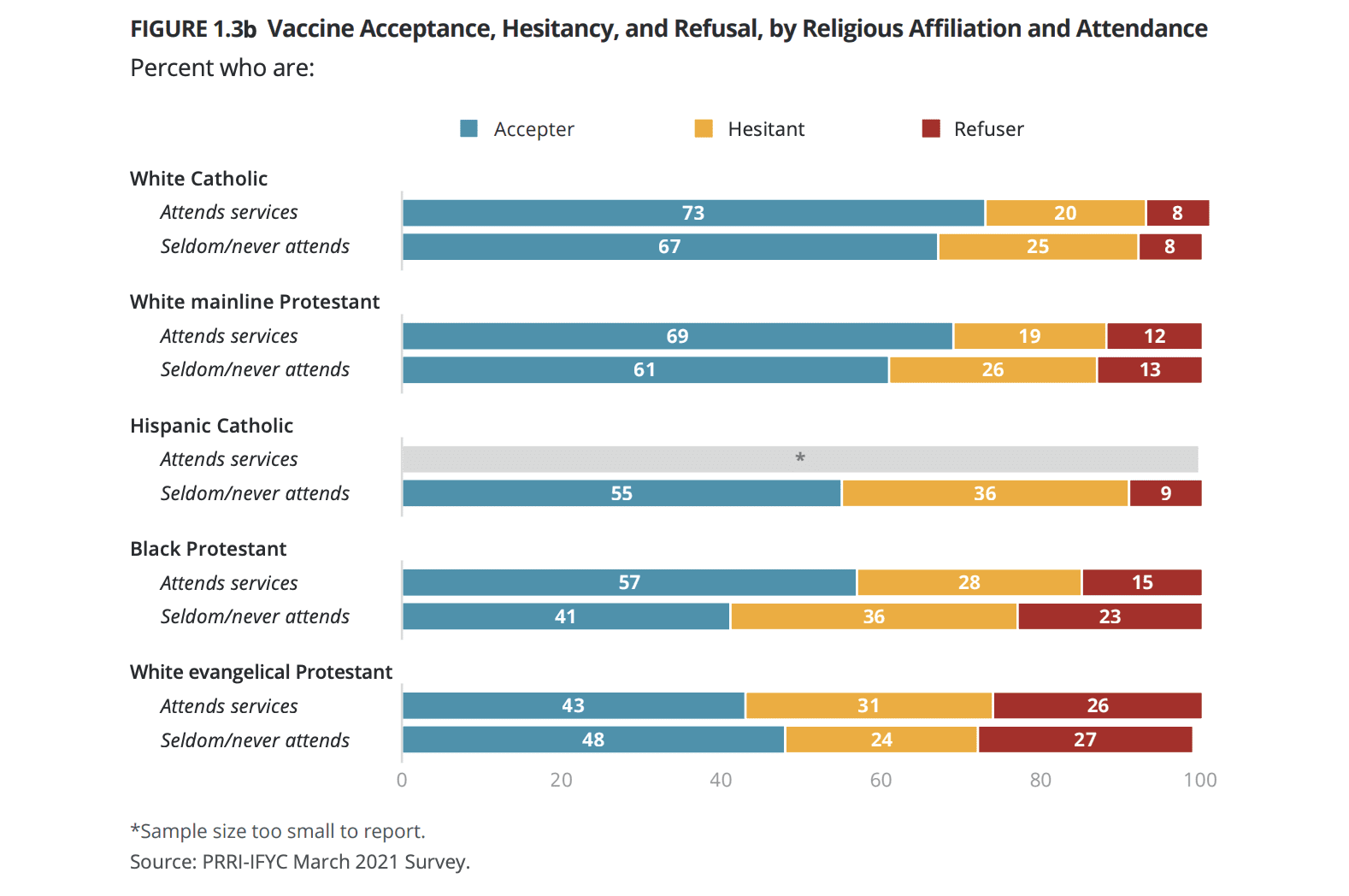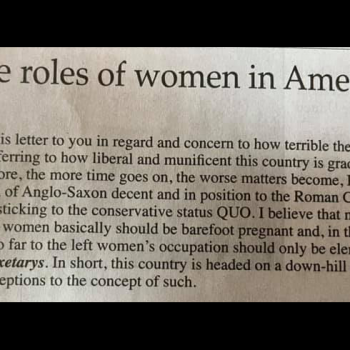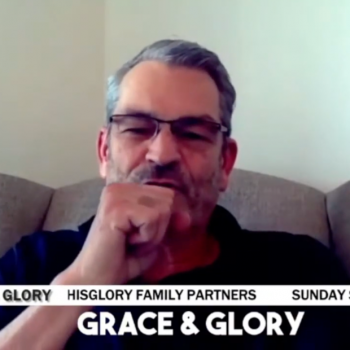Since the beginning of the pandemic, religion has been all too present in the national and international conversation about how to respond, often in troubling ways: fighting public health measures, spreading misinformation, and hawking pseudoscientific (or outright anti-scientific) responses that endangered the faithful as well as everyone else around them.
Now that we’ve reached the point where vaccinations for COVID-19 are becoming widely available, it’s worth asking the question: Are we going to see more of the same? Is there a positive role for religion to play in rates of vaccination? And if so, are religions embracing it or falling short?
Those are the questions that animated a recently released survey about religious messaging and willingness to vaccinate.
The survey was jointly conducted by Interfaith Youth Core (IFYC), a student advocacy group, and Public Religion Research Institute (PRRI), a non-partisan research outlet that focuses on religion’s relationship with American culture and government policy. They surveyed more than 5,000 adults across America, asking people who expressed discomfort with vaccination whether certain faith-based approaches would help put them at ease.
The results are honestly a little underwhelming. High numbers of vaccine-hesitant Americans — as many as 70% in some groups — say they would look to a religious leader as a source of information. But just over one in ten believe that they would be more likely to get the vaccine after being encouraged by a religious leader or fellow congregant, or if their church of choice held a forum about vaccine safety to address their misgivings. Ask people who have already decided not to get the vaccine, and fewer than 5% think religious interventions could change their minds.

In other words, faith-based interventions might move the needle on vaccine acceptance, but not by much. They’re better than nothing, and a lot of people say they’re willing to listen… but in a lot of cases, their minds are made up.
What’s most interesting about the survey is the demographic information they discovered about who’s willing to get vaccinated, who’s waffling, and who’s outright refusing.
When the people at IFYC and PRRI delved into the demographic data, they found a very interesting connection between race, religious attendance, and vaccine acceptance. They noticed a positive link between religious attendance and willingness to be vaccinated… but only for Black Protestants. Those who don’t attend church on a regular basis reported vaccine acceptance at a rate several percentage points lower.

While the effect isn’t massive, it’s significant because Black Americans are among the most vaccine-hesitant racial groups in the country. Their mistrust is well-earned, given the racist medical ethics reported and documented throughout American history and into the current century.
But to win the fight against COVID, public health units need to shut down as many transmission vectors as possible, and these numbers suggest that pro-vax faith communities are playing a role in allaying the fears of vaccine-hesitant Black Americans.
The connection between attendance and acceptance doesn’t hold true for white evangelicals, though. In fact, those who attend services frequently are slightly more likely to hesitate or refuse vaccination outright than those whose church presence could be described as slim to none. The numbers are low, though, and levels of vaccine refusal are virtually the same for all white evangelicals surveyed, churchgoing or not. White evangelicals were also the group least likely to agree that getting the vaccine was an act that fulfilled the common religious edict, “love thy neighbor.”
It’s impossible to look at that information outside of the context of more than a year spent reading story after story about white Christian zealots who champion religious freedom at the expense of the larger community, refusing to participate in safety measures like social distancing or mask-wearing, actively encouraging their congregations to reject COVID protocols.
The information suggests that an ethic of care and compassion is missing from the white evangelical experience, to such a degree that frequent religious attendance actually makes them obey Christ’s second great commandment less than those who stayed home and slept in.
(Featured image via Shutterstock)




It’s Moving Day for the Friendly ..."
It’s Moving Day for the Friendly ..."
It’s Moving Day for the Friendly ..."
It’s Moving Day for the Friendly ..."